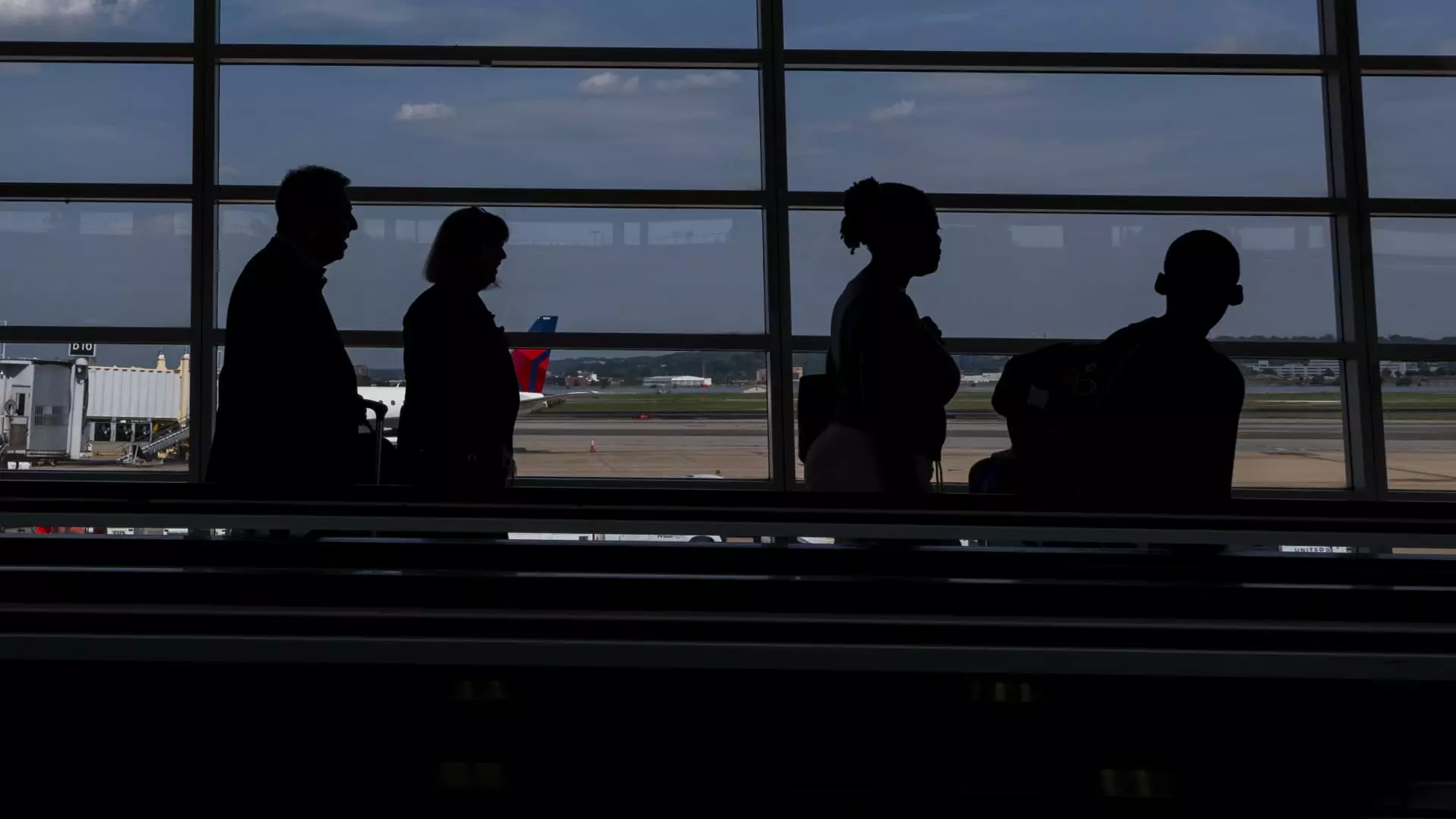In a nation fraught with division and anticipation surrounding the upcoming presidential election, a noticeable shift is occurring in the travel plans of many Americans. The case of Emily Reeve and her husband serves as a microcosm of this trend. Known for their tradition of escaping to sunlit locales such as Hawaii and Disneyland for Thanksgiving, this year finds them grounded in their home city of Portland, Oregon. The couple’s decision to forgo their usual holiday travels stems from concerns about safety and potential civil unrest—emotions not unfounded given the current political climate.
Particularly after what previous elections have demonstrated, anxiety surrounding polling day looms large. According to a recent survey by the travel site Vacationer, an astonishing 64% of U.S. adults are contemplating changing their travel plans due to fears regarding potential unrest—anxiety exacerbated by the disparate opinions around the election outcomes. Emily expressed her worries about being caught in chaotic situations while traveling, as civil disturbances could erupt, particularly in major transit hubs and tourist hotspots.
Travel industry executives are observing this pattern closely. Delta Air Lines CEO Ed Bastian commented on the trend, indicating that consumers might pause their travel plans around Election Day, as is customary during times of political uncertainty. This hesitation aligns with historical travel patterns observed surrounding previous elections, suggesting that this behavior is nothing new but rather a repetitive cycle influenced by civic events.
Shifting Sentiments and Booking Trends
While federal authorities assure the public of stringent security protocols for the upcoming election, businesses and airlines are already witnessing a shift in consumer behavior. Companies involved in travel report that domestic flight bookings have decreased by nearly 19% as the election nears. Yet, paradoxically, post-election bookings are soaring, hinting that people are eager to resume travel once the uncertainty subsides.
Travel agents note that the tension around the elections is influencing not only the timing but also the nature of travel plans. Business travel worries are among the top concerns for companies. As Kelly Soderlund from Navan mentioned, duty of care—the obligation companies have to ensure employee safety—dominates conversations with clients. Workers in federal jobs are particularly anxious about their job security, leading them to postpone planned vacations.
Individual travel choices also mirror the public’s unease. For example, senior travelers Olivia and Ross Dwinell expedited their trip to Europe out of fear that domestic turmoil could inhibit their return. Their story illustrates how personal experiences and concerns directly translate into travel behaviors. Meanwhile, another family, tired of political conflicts that might arise during holiday gatherings, chose to remain in Dallas instead of pursuing family holidays as they had in years prior.
What remains critical in this situation is the generational divide in attitudes toward the current political environment. A survey by Future Partners found that younger generations—particularly Gen Z and millennials—are more likely to consider potential political conflict when gathering with family, compared to their older counterparts. This highlights an increasing awareness and sensitivity among younger travelers regarding the potential for tension among family members with differing political views.
As Americans navigate the complexities of Thanksgiving travel amid a polarized political atmosphere, it becomes clear that the interplay of civic events and personal choices will shape the landscape of travel in unprecedented ways. While some opt for the safety of staying home, others are seizing the opportunity to travel while they can, reflecting a dynamic that fluctuates with each unfolding event in the political sphere.
Amidst rising anxiety, communities must find ways to foster understanding and connection, encouraging open dialogue that transcends political divides. Perhaps, in the long run, the goal should be to accommodate all travelers—those seeking adventure and those seeking comfort—creating a travel culture that respects both perspectives. As apprehensions linger and political discussions heat up, Americans find themselves redefining what holiday travel means in a time of uncertainty.


Leave a Reply